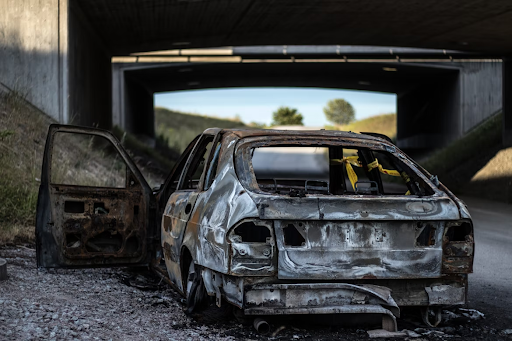
Car accidents are a very stressful and costly experience, and it can be hard to know what to do after the fact. But once the dust settles, you’ll need to speak to a personal injury lawyer and your insurance provider to work out a settlement compensation. Otherwise, you may have to pay all of your bills.
Here’s What You Can Collect After a Car Accident
Car accident “damages” refers to the compensation you’ll collect due to injury, neglect, or loss for the accident of the at-fault party. Your lawyer would distribute your funds if you hired one.
Lawyer Fees (If Applicable)
If you hired a lawyer that works on contingency, then a part of your settlement will pay for your attorney fees. If you hired a non-contingency lawyer, then you may continue to pay them if you wish to negotiate part of your compensation. Otherwise, you may let them go at this point.
Medical Costs for Your Injuries
After your lawyers are paid, they will start distributing your settlement across your liens. Liens are what medical providers and other providers place on your bills to gain rights to your debt. That means you’re legally required to pay these expenses before finalizing your settlement.
Keep in mind that future medical expenses or future lost income won’t be “paid” to your provider or yourself right away, but they should be calculated in your settlement claim.
If you have proof (medical documents) to back up your injury claim, you could be entitled to:
- Medical bills for all treatments
- Ambulance and hospitalization fees
- Prescription medication
- In-home services
- Rehabilitation or physical therapy
- Permanent disability
You may also be entitled to more money depending on the extent of your injuries.
For example, your compensation could be higher if you’re suffering from residual pain after an accident, but you may need a loan to afford a lawyer to get that kind of settlement. Uplift Legal Funding can provide you with the funds you need to get what you’re owed after an accident.
Other Economic Expenses
While medical costs fall under the umbrella of economic expenses, you have to pay them off right away. A company may not necessarily put liens on property damage or vehicle damage, but you’ll still receive compensation for them, as well as lost income and medical bills.
Wrongful death damages, which cover funeral costs, loss of companionship, pain and suffering, medical bills, and loss of enjoyment in life, often fall under economic damages, as well. You’ll need proof, like receipts, pay stubs, and medical bills, to back up your economic expense claim.
Non-Economic Expenses
A skilled car crash attorney can easily calculate the costs associated with economic expenses, but non-economic expenses are harder to prove because they don’t have a dollar amount.
A common non-economic expense is pain and suffering, which refers to any mental or physical distress that occurred due to your direct injuries or personal loss, like the death of a family member.
The amount you receive for non-economic expenses depends on a few factors:
- The amount of physical damage you suffered due to the injury
- The amount of psychological damage incurred from the accident
- How much the accident affected your quality of life
- The future outlook of your pain and suffering
You have a better chance of winning pain and suffering damages if you:
- Became disabled due to the accident
- Were disfigured due to the accident
- Received noticeable scarring from the accident
- Went to therapy for anxiety or depression
- Have a general loss of enjoyment of life
Some states have no caps for damages. Others will. For example, Indiana doesn’t cap damages for pain and suffering, but it will cap claims against the government or for medical malpractice.
Punitive Damages
Punitive damages are paid out to the claimant if the at-fault driver was doing something illegal at the time of the crash. This includes drunk driving or being under the influence of drugs. The state and your lawyers will pay out punitive damage if it can prove criminal wrongdoing.
Everything Else
If you have money left over from your settlement, you get to use everything else, no strings attached. However, it’s a good idea to hold on to some of this money if your condition worsens or you have to take more time off of work. Alternatively, you could use the settlement for a car.










